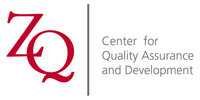Contracting Authority: Landesamt für Soziales, Jugend und Versorgung (LSJV) (State Office for Social Affairs, Youth and Care of Rhineland-Palatinate)
Project Duration: December 2022 to April 2025
Background and Goal: The Rural Doctor and Public Health Service quotas in the state of Rhineland-Palatinate were created by two state laws. They ensure primary care in rural regions and ensure the next generation of doctors in the public health service. They also enable alternative access to the study of medicine and people without excellent grades can be admitted. Participants commit to working as rural doctors or doctors in the public health service for at least ten years after completing their studies. Students were selected using the former admission process from the 2019/2020 winter semester. It included a points system made up of the average grade of the University Entrance Qualification, the “Test for Medical Studies” (TMS), relevant professional experience and/or voluntary work, as well as personal selection interviews.
The goal of the project is to further develop the personal selection interviews as part of the application for the Rural Doctor and Public Health quotas in Rhineland-Palatinate. The previous selection process lacked relevance and necessary degree of selectivity. The modernized selection interviews are intended to make it possible to select applicants who are particularly suitable for their future work. As part of the project, two modified procedures are monitored by ZQ.
Methodological Approach: The development of the new instruments for the selection interviews is done by ZQ in consultation with a working group consisting of members of JGU Medical Center, experienced doctors from professional practice and jurors from previous selection procedures. The renewed procedure focuses more closely on two aspects with regard to later work as rural doctors or doctors in the public health service: the motivation of the applicants and their interpersonal skills.
The scientific support through ZQ also includes the formal evaluation of the modified selection process. The formal evaluation looks at the process from three perspectives: First, ZQ employees participate in the selection interviews as passive observers. Then, the findings of the observation are supplemented by an applicant survey. Finally, a survey of the jurors and the working group is conducted.
Key Results: In June 2024, the first renewed procedure was monitored and evaluated by the ZQ, such as the second one by November 2024. The evaluation results refer to the applicant surveys, the juror’s surveys and the observations of the selection processes by ZQ employees.
The applicants surveyed (n=15 in t0 and n=27 in t1) are largely satisfied with the process and would retain the individual elements that were newly introduced in the process. In a standardized survey, the applicants were able to evaluate the procedure. This survey consisted of ratings of the personal interviews, using scales and German school grades. The assessments of the selection interviews of both rounds were in the medium to upper range.
The questioned jurors of the procedure (n=8 in t0 as well as in t1) are also predominantly (very) satisfied with the changes brought about by the modernization. They believe that it has been possible to select more suitable applicants than before.
The semi-standardized observations of the procedures were able to show, on the one hand, that the discussions and the standardized processes ran smoothly and also revealed potential for further development of the procedure. Further development potential from the first round has also already been implemented for the second round.
